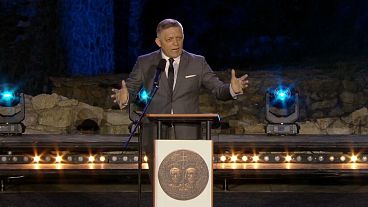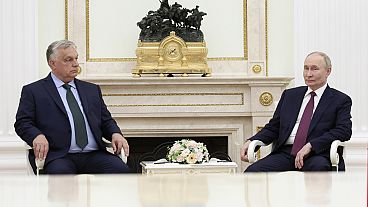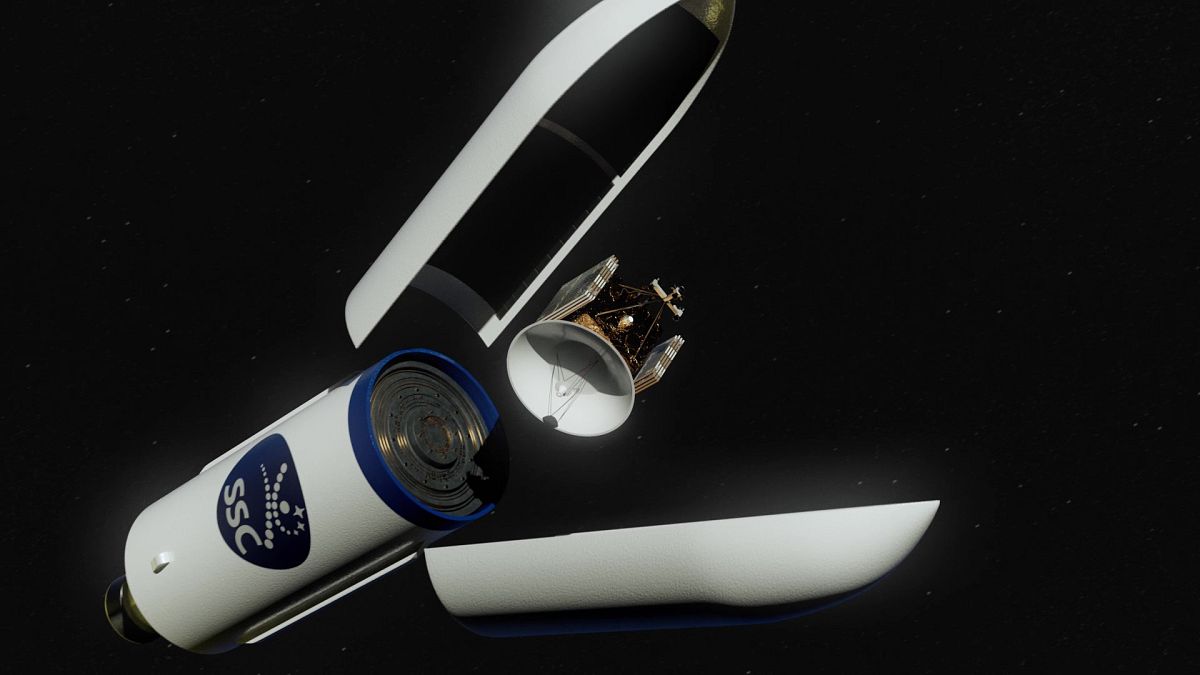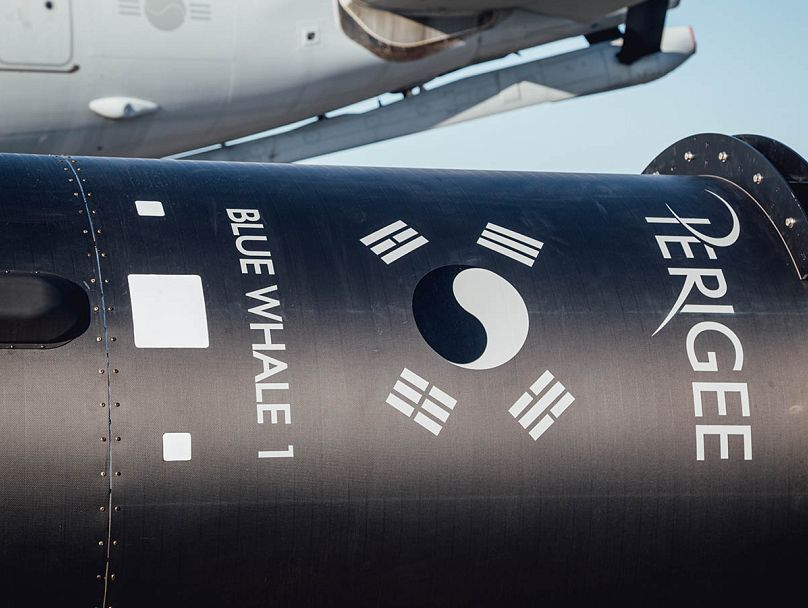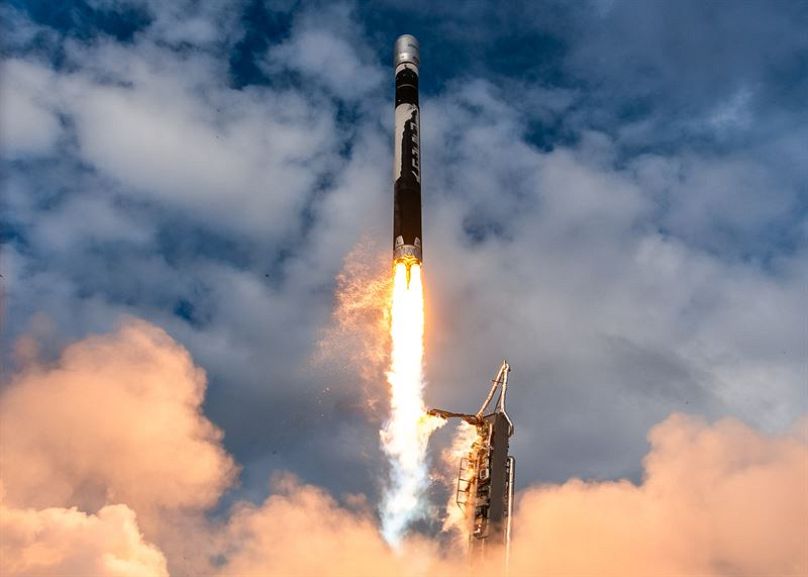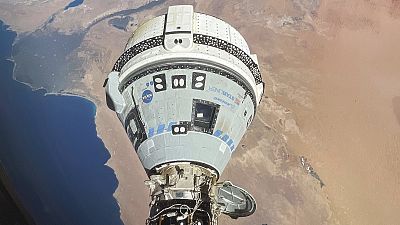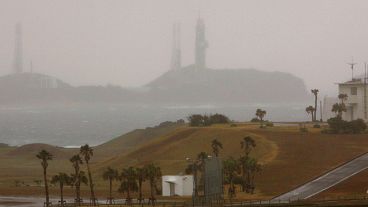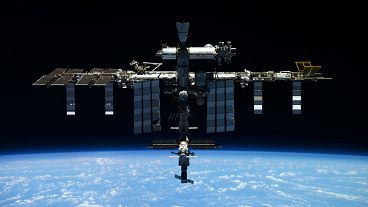The Swedish Space Corporation (SSC) is partnering with US and South Korean rocket providers with a focus on sustainability and national security.
A Swedish space company recently chose new partners from South Korea and the US to send the first satellites from mainland Europe.
While the European Space Agency has relied on the Guiana Space Centre in French Guiana for its missions since 1975, Europe is increasing its efforts amid demand for commercial and defence satellite capabilities.
In 2023, Sweden inaugurated a launch site in the Arctic that is set to change the landscape of European space operations.
“This will add launch capability that currently does not exist in mainland EU – a commercial European launch service that is desperately needed by both the space industry and society as a whole – of huge significance for our everyday lives, as well as for national and international security,” the Swedish Space Corporation (SSC)’s CEO Charlotta Sund told Euronews Next.
“I'm so proud that we now can provide these capabilities from mainland Europe, inside the European Union. And we have those facilities, here in Europe, because this means that all the good initiatives we do have in Europe could also bring us forward, and we can play in a better way in the global space market that is actually growing a lot,” Sund added.
Cross-continental partnerships with Asia and North America
SSC's spaceport Esrange Space Centre in Kiruna, northern Sweden, has primarily supported sounding rocket launches for microgravity and atmospheric research since 1966.
With its newly expanded infrastructure that now also supports satellite launches, Esrange Space Centre has become the leading prospective candidate for Europe’s first satellite launch.
The SSC says it is planning the first orbital satellite launch with its South Korean partner Perigee Aerospace in late 2025.
“It is in Europe and it's perfect for sending out rockets with satellites,” said Sund.
She did add, however, that there are not many space engineers in Sweden but said the ones they have are “good in a global context”.
Sund says securing know-how through cross-continental partnerships was crucial for SSC “to facilitate and be able to send out rockets and satellites from Esrange”.
“Unfortunately, what we can see is that Europe is a little bit behind. SSC as well as the overall space industry are really longing for Europe to come into play in a better way,” Sund added.
Perigee Aerospace's Blue Whale 1 micro launcher
SSC says that the South Korean aerospace company Perigee Aerospace’s micro launcher Blue Whale 1 is “an ideal match for our orbital launch complex at Esrange”.
“Launching a South Korean rocket from the Swedish side, serving global customers, all of these efforts will make space exploration more accessible and more affordable for everybody,” Sooyeon Shim told Euronews Next.
The two-stage launch vehicle can carry a payload of up to 200 kg into a 500 km orbit synchronous with the Sun from Esrange Space Centre, according to Perigee.
The micro launcher has a fully reusable first stage and uses propellants such as liquid oxygen and methane instead of kerosene for both stages.
“We are very mindful of the sustainable access to the orbit. We are even considering biomethane as our future fuel option,” Shim added.
Perigee Aerospace says Blue Whale 1 is an affordable vehicle with a total launch price of less than $3 million (€2.8 million).
“Blue Whale 1 aims to provide the most affordable ride to the orbit. And then we are targeting a flat price of $20,000 per kg for orbital launch,” said Shim.
“This is possible because we are developing key technologies all in-house, including liquid methane engines and lightweight carbon fibre structures and ultracompact flight computers, and avionics,” she added.
Blue Whale 1 is still waiting for a flight test which is scheduled to take place in South Korea this year.
In 2025, it will make its debut in both South Korea and Sweden, according to Perigee.
“Our first step is a test launch… which utilises the upper stage of the Blue Whale 1. This is to validate the hardware and ground support systems of the Blue Whale and the vehicle.
“And then next year we will, starting from South Korea, conduct the first launch of the Blue Whale 1. And then we will move to Esrange for another launch from there,” Shim said.
Firefly Aerospace’s Alpha: ‘Flight-proven’ mini rocket
Unlike Perigee’s Blue Whale 1, Firefly’s Alpha rocket is “flight-proven” with its demonstrated experience launching orbital missions from the Vandenberg Space Force Base in California.
It also claims to be “the only orbital rocket ready to take customers to space in its small-lift launch class”.
Firefly’s small launch vehicle Alpha is capable of carrying 1,030 kg into low-Earth orbit, the company says.
With the inaugural Alpha launch from Esrange Space Centre planned for 2026, SSC says the collaboration with Firefly is set to support commercial customers and “enable tactically responsive space missions to further advance national security for NATO countries”.
“Sweden is a new member of NATO. We will see both a purely commercial use of the spaceport in strength, but also with the new collaboration, we probably could utilise, our capabilities also for more of a military use going forward,” said Sund.
According to Firefly, its Alpha rocket successfully launched and deployed a satellite for the US Space Force following a 24-hour notice in September 2023, and continues to serve as a launch vehicle for rapid-response missions.
SSC says its aspirations going forward are to scale up and eventually become a full-service provider for launching satellites but added it “will not rush”.
“We want to make sure that we have a streamlined and effective launch service that is appreciated by our customers before we can make further developments,” said Sund.
“We intend to ramp up slowly by an initial cadence of a few launches per year. Long-term, our ambition is to grow into a full launch service provider at Esrange,” she added.
For more on this story, watch the video in the media player above.


